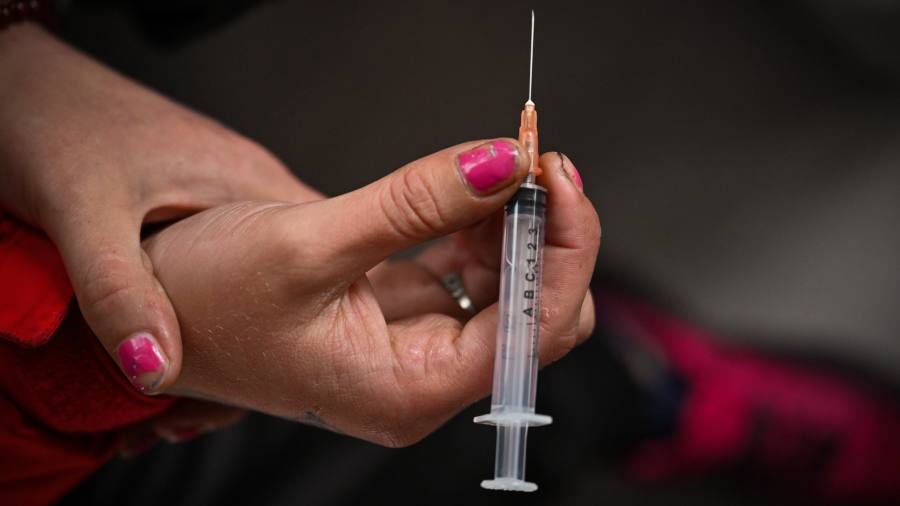
Receive free UK politics & policy updates
We’ll send you a myFT Daily Digest email rounding up the latest UK politics & policy news every morning.
Scotland has called on the UK government to decriminalise the possession of all drugs for personal use in a “bold and radical” proposal aimed at lowering its exceptionally high death rate from substance misuse.
Scotland’s governing Scottish National party said in a paper on Friday that it had done “all [it] can” to help rather than penalise drug users, and that sweeping legislative changes by London would be needed to reduce harm drastically and contribute to a wider “public health approach”.
The pro-independence party said changes to the law should be coupled with measures to support and rehabilitate people with addiction problems, including reviewing drug classifications and offering safe spaces for people to use drugs.
Scotland has the highest drug-related death rate of any country in Europe. Some 1,330 people died from drug misuse in Scotland in 2021, the latest year for which data is available, representing the second-highest annual total on record.
“To improve and save lives, we must be innovative, bold and radical,” the Scottish government wrote. “Scotland needs a caring, compassionate and human rights informed drugs policy, with public health and the reduction of harm as its underlying principles.”
While the Scottish government said it was “ready to work with the UK government to put into practice the progressive policy”, it urged London to devolve drug policy if it did not want to change course.
Edinburgh’s demand for a change in UK drug policy comes after Rishi Sunak’s government last year blocked legislation aimed at making it easier for people legally to change their gender, which had been passed by MSPs at Holyrood.
In January 2021, Nicola Sturgeon, then Scotland’s first minister, invested £250mn into a new five-year mission to reduce drug-related deaths.
The Scottish government said this initiative had helped prevent fatal overdoses and improve recovery services but that further action was needed, citing evidence that between 2017 and 2021, drug misuse cut life expectancy by 5.9 weeks for men and 2.5 weeks for women in Scotland.
While it pointed to the fact that decriminalisation could result in fewer people being imprisoned, thereby freeing up police time, the paper called for a debate over “strict regulated markets” for the supply of drugs. It noted that decriminalisation would not tackle problems around the quality of substances sold or the gangs that profit from them.
Portugal decriminalised the possession of all drugs in 2001 as part of an effort to reduce soaring deaths from drug misuse, while coupling the legal change with investment in prevention and rehabilitation.
The SNP has repeatedly called for drug policy to be devolved, a request that intensified after the UK Home Office refused to allow a trial of safe drug consumption rooms in Glasgow in 2019.
Labour leader Sir Keir Starmer has previously indicated that he would respect the decision of Scottish parliament if it approved a trial.
Ant Lehane, policy lead at Cranstoun, a harm reduction charity, said the SNP’s “timely” paper should spur nationwide changes to drug policy.
“This issue is not isolated to Scotland, and amendments to the [Misuse of Drugs Act] would benefit the UK as a whole by taking major strides towards ending the United Kingdom’s shame of consistently having the highest number of drug deaths in Europe,” he said.
The UK government said it was “committed to preventing drug use by supporting people through treatment and recovery and tackling the supply of illegal drugs”.
“We have no plans to decriminalise drugs given the associated harms, including the risks posed by organised criminals, who will use any opportunity to operate an exploitative and violent business model,” it added.